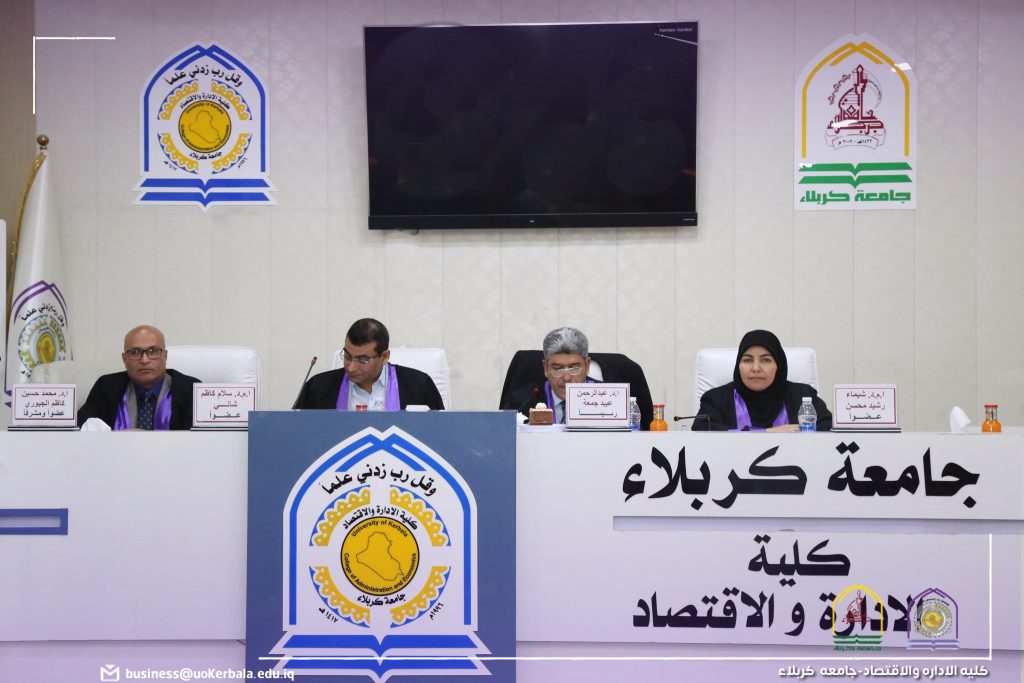Measuring the impact of economic diversification policy in achieving financial sustainability – experiences of selected countries with reference to Iraq
A thesis submitted to the Council of the College of Administration and Economics – University of Karbala, which is part of the requirements for obtaining a master’s degree in economic sciences
Submitted by the student
Mustafa Wissam Muhammad Al-Fatlawi
Supervised by
a.m.d Salam Kazem Shani Al-Fatlawi
Economic diversification is one of the main concerns of economists and decision makers alike, and various countries seek in their economic programs to achieve the highest stages of economic diversification, while financial sustainability is one of the modern concepts in the science of public finance that is concerned with the state’s ability to pay its financial obligations from its own resources in the long term. Financial sustainability is linked to economic diversification in a positive relationship. It is possible that economic diversification policies can lead to achieving financial sustainability. Because economic diversification can reduce economic fluctuations, achieve stability, and maintain a sustainable financial position.
The research problem adopts the theme that Iraq is one of the rentier countries that depends on one economic resource, which is oil, to finance public spending, and in the event that the overall economy is exposed to external and internal shocks such as low oil prices and the global financial crisis in addition to the Covid-19 pandemic, a state of financial deficit will occur, so it is better Relying on economic diversification, which does not allow the economy to be subject to sectors that use raw materials, expanding the activities of the economy, increasing competitiveness, and creating added value for the economy as a whole, leading to achieving financial sustainability.
The research is based on the hypothesis that economic diversification works to enhance financial sustainability through the use of diversification policies, which contributes to raising production levels and increasing economic growth rates when countries are exposed to internal economic crises. The researcher adopted the inductive approach by studying ideas and theoretical frameworks regarding… The economic diversification policy and its impact on achieving financial sustainability, and the deductive approach through the standard method in demonstrating the impact of the economic diversification policy on achieving financial sustainability in the sample countries using the autoregressive distributed lag (ARDL) model, which relies on stability testing, limits, diagnostic tests, and testing short- and long-term parameters. And the error correction parameter, the research aims to shed light on the role of economic diversification in achieving financial sustainability and leaving excessive dependence on oil as a single resource in the development process.
The most important conclusions reached by the researcher is that economic diversification can enhance financial sustainability by relying on the diversification policies used during the research period in the sample countries (China, UAE, Iraq), which lead towards structural transformation and thus achieve financial sustainability. Because economic diversification can achieve economic stability and maintain a sustainable financial situation, in addition to that the dependent variables (ratio of public debt to GDP, ratio of primary deficit or surplus to GDP, tax gap) have a significant impact on the independent variables (ratio of foreign direct investment to GDP). GDP, the ratio of tax revenues to GDP, the ratio of non-oil exports to GDP), and the study recommends re-establishing plans that contribute to achieving diversification of the economic base through a clear economic policy that includes revitalizing the economy and preparing the infrastructure.




























































